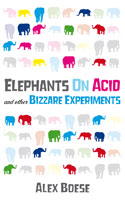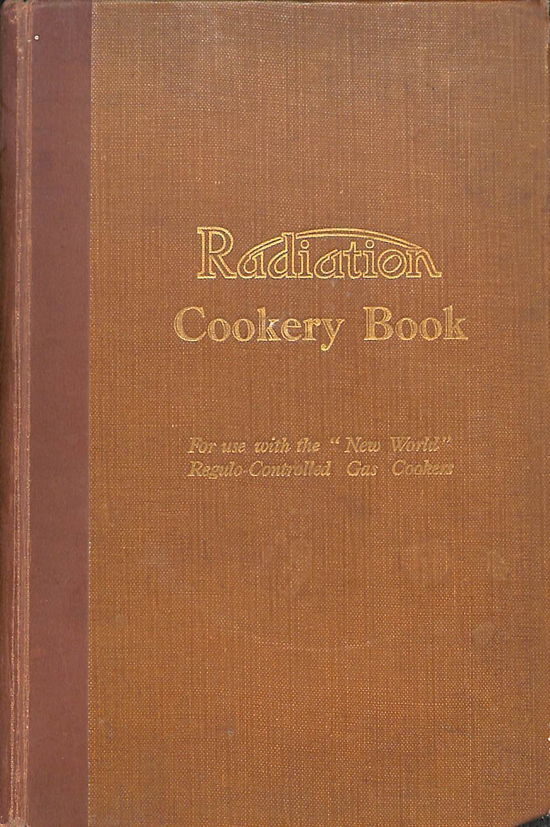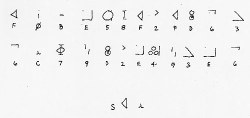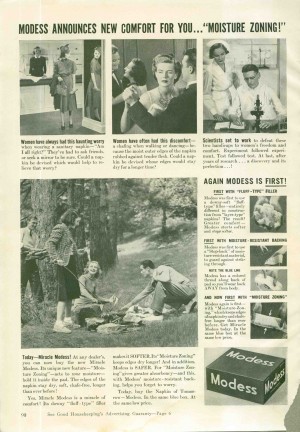Science
The Smoke-Filled Room
If you were sitting in a waiting room and smoke began to billow out of a vent in the wall, you'd probably do something about it. At least, you'd report the problem to someone. Or maybe not.In a famous experiment conducted by John Darley and Bibb Latané during the 1960s, Columbia University students were invited to share their views about problems of urban life. Those who expressed an interest in participating were asked to first report to a waiting room in one of the university buildings where they would find some forms to fill out before being interviewed. They had no idea that the urban-life study was just a cover story. The real experiment occurred in the waiting room.
As they filled out the forms, smoke began to enter the room through a small vent in the wall. By the end of four minutes, there was enough smoke to obscure vision and interfere with breathing. Darley and Latané examined how the students reacted to this smoke in two different conditions.
In the first condition, the students were alone. When this was the case, they invariably investigated the smoke more closely and then went out into the hallway to tell someone about it.
But in the second condition, the students were not alone. There were two or three other people in the room, who were secret confederates of the researchers. They had been instructed to not react to the smoke. They would look up at it, stare briefly, shrug their shoulders, and continue working on the forms. If asked about it, they would simply say, "I dunno."
In this setting, according to Darley and Latané, "only one of the ten subjects... reported the smoke. the other nine subjects stayed in the waiting room for the full six minutes while it continued to fill up with smoke, doggedly working on their questionnaires and waving the fumes away from their faces. They coughed, rubbed their eyes, and opened the window -- but they did not report the smoke."
That's the power of group pressure.
If you ever get the chance, check out Darley and Latané's book The Unresponsive Bystander: Why Doesn't He Help? It's not easy to find because it's out of print, but it's full of strange experiments like the smoke-filled room one.
Also check out this youtube video based on the smoke-filled room experiment. It's not the original study, but a later replication of it.
Posted By: Alex - Thu Aug 14, 2008 -
Comments (0)
Category: Science, Experiments, Psychology
The Truth About Rainbows
This video offers a pretty good case for why our country is doomed. After all, these kind of people are allowed to vote.From the video: "I'm just wondering what the heck is in our water supply, what the heck is in our oxygen supply of the metallic oxide salts that creates a rainbow effect in a sprinkler? What is oozing out of our ground that allows this type of effect to happen?"
Posted By: Alex - Wed Aug 13, 2008 -
Comments (2)
Category: Science
13 Things That Don’t Make Sense
Posted By: Paul - Sun Aug 10, 2008 -
Comments (3)
Category: Science, Technology, Unsolved Mysteries, Books
Bizzare Experiments

But eagle-eyed reader Rowenna noticed that, on the cover, the word "bizarre" was misspelled. They spelled it "bizzare". Panicked, I ran to check if the actual cover had the same misspelling. (By coincidence, I had just received my copy of the UK edition in the mail.) Thankfully, it was spelled correctly. But then I noticed that the same misspelling occurs on the cover photo on Amazon. I'll have to let my publisher know. I don't think "bizzare" is an alternative UK spelling of "bizarre".
Posted By: Alex - Thu Aug 07, 2008 -
Comments (1)
Category: Science, Experiments, Books, Alex
Cocaine on Money
An article in the April 2008 issue of Trends in Analytical Chemistry discusses the "state-of-the-art in the analysis of cocaine on banknotes." Apparently scientific interest in this subject has grown enormously. Before 2003 there was only an average of 1.8 papers per year on the subject. Now there's an average of 4.5 papers per year about it.The most interesting factoid from the article is the amount of cocaine found on money in different countries. Predictably, America leads the pack. (Yay! We're Number One!!!):
The country with the highest contamination of banknotes due to cocaine is the USA (with mean value levels in the range 2.86–28.75 μg cocaine/note, depending on the year and the city)... the highest cocaine levels in Europe can be found in Spanish Euros (€), where 889 μg of cocaine was found in a banknote and the mean concentration was 155 μg/note (n = 16), compared with the lower levels of cocaine found on German Euros (€) (5 times less cocaine per note) and Irish banknotes (€)... semi-quantitative data from 1995 and 1999 suggest that 51% and 40%, respectively, of UK banknotes (£) in general circulation were cocaine contaminated with levels of 0.0011 μg/note, the upper level found on confiscated money being 0.0029 μg/note. In the case of Swiss banknotes, it was found that 6% of the currency (356 samples) was contaminated with cocaine (with concentrations higher than 1 ng/note).
The high cocaine levels on Spanish Euros (€) could be explained by Spain being the main entry point for cocaine coming into the European Union. This seems to be confirmed in the UNO report data regarding cocaine seizures in Europe in 2005, where Spain leads the list, followed by Portugal and The Netherlands, and in data about annual prevalence of abuse as a percentage of the population age, where Spain also leads the list of European countries, followed by England, Wales and Italy.
Posted By: Alex - Wed Aug 06, 2008 -
Comments (0)
Category: Drugs, Science
The Cow Whisperer
I suspect cows are going to become a theme here at WU. They're ubiquitous and silly and important. Those are three good criteria for inclusion here. Hey, if cows were good enough for Gary Larson humor, they're good enough for us!The latest news is that they're demanding headphones as they graze! Not sure if iPods are included. Read the article here.
Then watch the video of "The Cow Whisperer" here.
Posted By: Paul - Wed Jul 23, 2008 -
Comments (5)
Category: Agriculture, Food, Science, Experiments, Technology, Cows
How many megabytes is your brain?

Hitachi recently announced that in 2010 they plan to unveil a 5TB hard drive. This led them to note that, "By 2010, just two disks will suffice to provide the same storage capacity as the human brain."
So, according to Hitachi, the brain has a 10TB storage capacity. But how did they arrive at this number?
There's been a lot of speculation about the brain's storage capacity. The most popular method of arriving at an answer is to estimate the number of synapses in the brain and extrapolate from there. This has led researchers to come up with numbers ranging anywhere from 3TB to 1000TB. Hitachi evidently was using this method.
But there's a second method (noted on the Of Two Minds blog). Psychologists have conducted experiments to measure how much information people are actually able to memorize. This produces much smaller numbers. They've concluded that it's only about two bits per second, or a few hundred megabytes averaged over an entire lifetime.
Of course, until scientists figure out a way to allow us to download our brains to computers, all these numbers are just useless trivia. And when that happens, we can all plug into the Matrix and live happily ever after.
Posted By: Alex - Mon Jul 21, 2008 -
Comments (0)
Category: Science, Psychology, Technology
Follies of the Mad Men #4
[From Good Housekeeping for October 1939.]Here's a great example of Madison Avenue trying to a) make a problem that doesn't exist or is minimal into an overwhelming burden that only their product can alleviate and b) bring the vaunted "miraculous" power of scientists and scientific imagery into the marketing mix.
Did women in 1939--or ever--really ask their friends for a hygienic crotch alert?
Posted By: Paul - Fri Jul 18, 2008 -
Comments (5)
Category: Business, Advertising, Products, Fashion, Hygiene, Science, Gender, Women, 1930s
Radiation Cookery Book
Back in March I wrote an article for Smithsonian magazine about pseudo-scientific terms that have gone out of fashion. For instance, it used to be all the rage to affix "electro-" to everything, as in "electro-lumps" (one marketers inspired term for coal).A term I definitely could have included in my article is "radiation." Once upon a time it didn't have the negative connotations it does today. Witness the "Radiation Cookery Book" from 1934. It didn't actually use radiation for the cooking (except in so far as heat itself is a form of radiation). Instead "Radiation" was the name of the company that made the gas cooker for which the recipes were designed.

Posted By: Alex - Wed Jul 16, 2008 -
Comments (2)
Category: Fads, Food, Cookbooks, Science, Weird Names
Unsolved Mysteries: The Fermilab Puzzle

The lab eventually posted the puzzle on its website, and the online community within days had partially solved it. The first part says, "FRANK SHOEMAKER WOULD CALL THIS NOISE." (referring, apparently, to a physicist who used to work at Fermilab). The bottom part reads: "EMPLOYEE NUMBER BASSE SIXTEEN." The middle section remains unsolved.
Unfortunately, these messages are as cryptic as the code itself. If you like puzzles, see if you can be the one to shed light on this enigma.
Posted By: Alex - Mon Jul 14, 2008 -
Comments (1)
Category: Science, Unsolved Mysteries

| Who We Are |
|---|
| Alex Boese Alex is the creator and curator of the Museum of Hoaxes. He's also the author of various weird, non-fiction, science-themed books such as Elephants on Acid and Psychedelic Apes. Paul Di Filippo Paul has been paid to put weird ideas into fictional form for over thirty years, in his career as a noted science fiction writer. He has recently begun blogging on many curious topics with three fellow writers at The Inferior 4+1. Contact Us |





